Lillian Pentecost
EdgeBERT: Optimizing On-Chip Inference for Multi-Task NLP
Dec 01, 2020
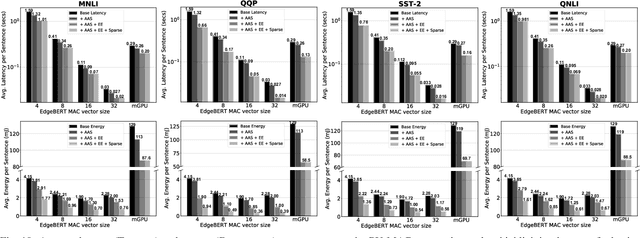
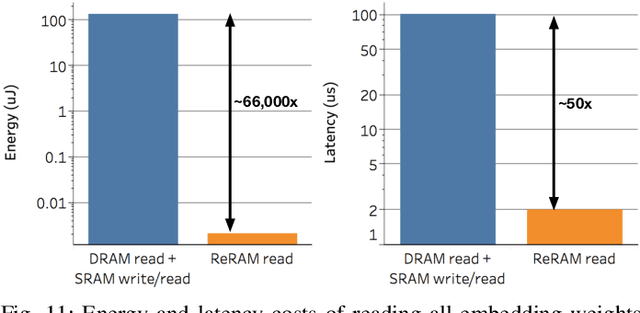
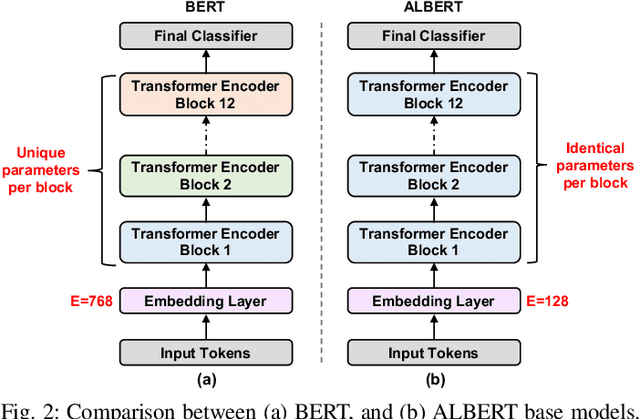
Abstract:Transformer-based language models such as BERT provide significant accuracy improvement to a multitude of natural language processing (NLP) tasks. However, their hefty computational and memory demands make them challenging to deploy to resource-constrained edge platforms with strict latency requirements. We present EdgeBERT an in-depth and principled algorithm and hardware design methodology to achieve minimal latency and energy consumption on multi-task NLP inference. Compared to the ALBERT baseline, we achieve up to 2.4x and 13.4x inference latency and memory savings, respectively, with less than 1%-pt drop in accuracy on several GLUE benchmarks by employing a calibrated combination of 1) entropy-based early stopping, 2) adaptive attention span, 3) movement and magnitude pruning, and 4) floating-point quantization. Furthermore, in order to maximize the benefits of these algorithms in always-on and intermediate edge computing settings, we specialize a scalable hardware architecture wherein floating-point bit encodings of the shareable multi-task embedding parameters are stored in high-density non-volatile memory. Altogether, EdgeBERT enables fully on-chip inference acceleration of NLP workloads with 5.2x, and 157x lower energy than that of an un-optimized accelerator and CUDA adaptations on an Nvidia Jetson Tegra X2 mobile GPU, respectively.
MLPerf Training Benchmark
Oct 30, 2019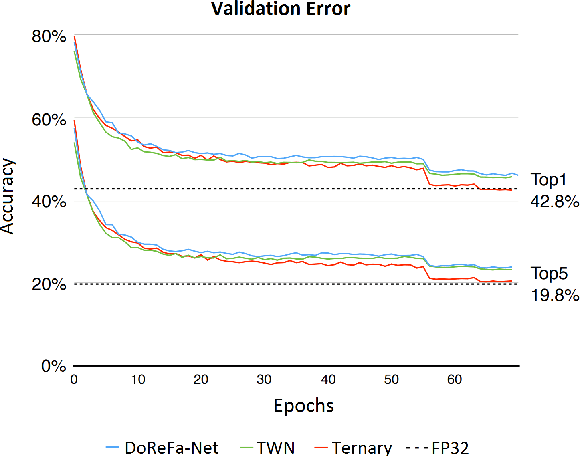
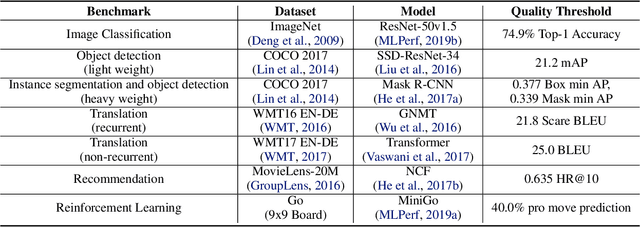
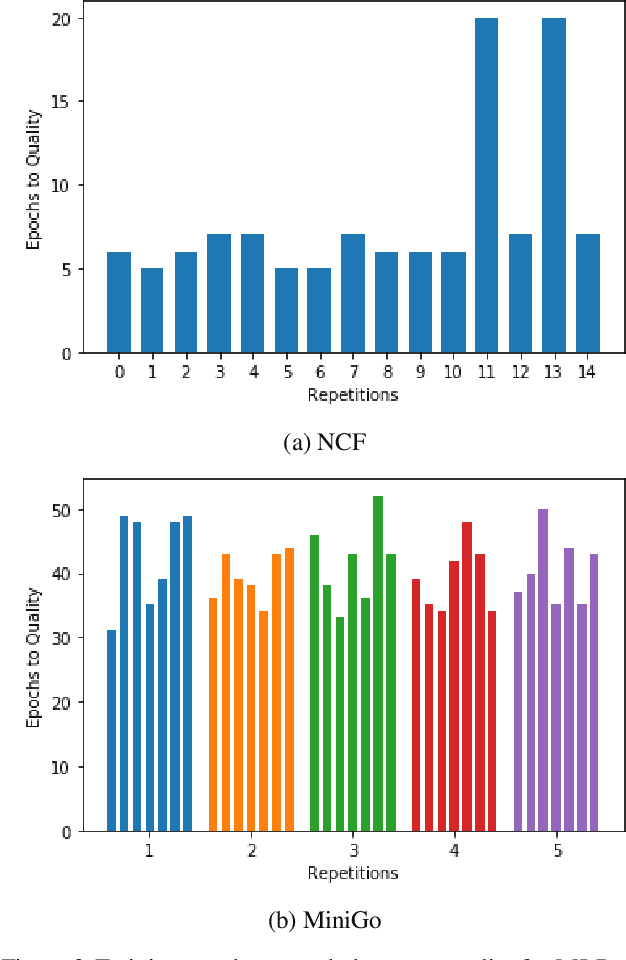
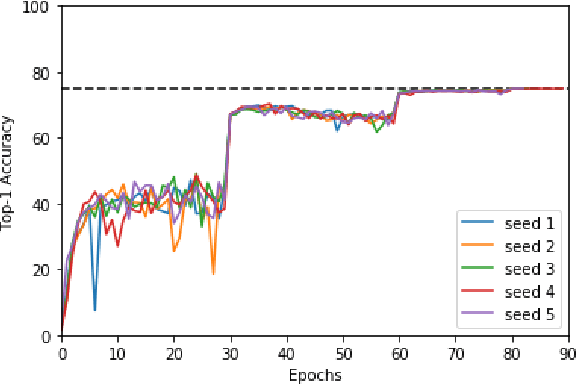
Abstract:Machine learning is experiencing an explosion of software and hardware solutions, and needs industry-standard performance benchmarks to drive design and enable competitive evaluation. However, machine learning training presents a number of unique challenges to benchmarking that do not exist in other domains: (1) some optimizations that improve training throughput actually increase time to solution, (2) training is stochastic and time to solution has high variance, and (3) the software and hardware systems are so diverse that they cannot be fairly benchmarked with the same binary, code, or even hyperparameters. We present MLPerf, a machine learning benchmark that overcomes these challenges. We quantitatively evaluate the efficacy of MLPerf in driving community progress on performance and scalability across two rounds of results from multiple vendors.
 Add to Chrome
Add to Chrome Add to Firefox
Add to Firefox Add to Edge
Add to Edge